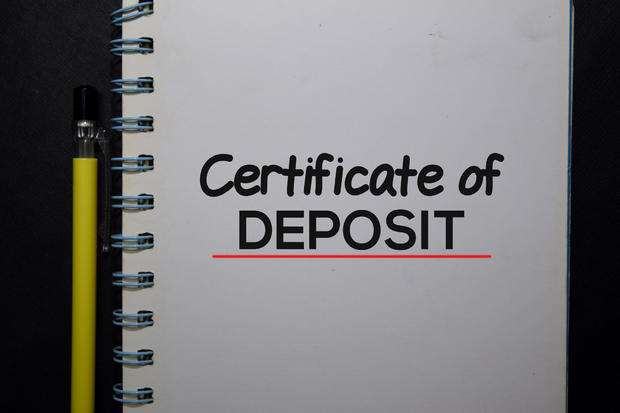Short-term vs. long-term CDs: Which is best?
The Federal Reserve has been increasing the federal funds rate since early last year, and while it has unfortunately led to higher rates on mortgages, credit cards and other borrowing products, it's also had a silver lining: Higher savings rates on deposit accounts.
Just look to certificate of deposit (CD) accounts for proof.
CDs — a type of savings tool that delivers a guaranteed return after a certain period of time — have seen rates jump considerably in recent months. In fact, many accounts are now offering rates of 5% or more. On a $5,000 deposit, that'd mean $250 earned in just 12 months. In 10 years, it'd be over $3,100.
Still, not all CDs are created equal. As you can see, returns can vary quite a bit depending on the length, or term, of the CD. Are you considering a CD account for your investing goals? Below we'll break down how to choose between short-term and long-term options.
Start exploring CD rates here now to see how much more you could be earning.
What are short-term CDs and when are they the best option?
Short-term certificate of deposit accounts typically last anywhere from three months to one year, though some banks may offer one-month options.
"These may be best for anyone who wants to stay relatively liquid," says Ron Tallou, owner of Tallou Financial Services in Troy, Michigan.
The biggest downside to short-term CDs is that they don't allow much time for growth, so your returns will be much lower than a longer-term CD could offer.
Still, for investors who need a guaranteed return and access to their cash shortly down the road, they can be a smart choice.
"These are most suitable when you want a safe and predictable return on money you won't need immediately but may need after a short period of time," says Scott Butler, a financial planner and certified retirement counselor at Klauenberg Retirement Solutions in Laurel, Maryland. "For example, if you are going to need a down payment for a home purchase in six months, a six-month CD could be a good choice."
Explore short and long-term CD options here now to see which is best for you.
What are long-term CDs and when are they the best option?
Long-term CDs typically range from three to as many as 10 years. These give your funds more time to grow, but they also tie up your cash, making it harder (and costlier) should you find yourself in an emergency. Most CDs have an early withdrawal penalty that amounts to one year or more of interest.
"The longer the term, the higher the yield, but also the fees to get your money out will be steeper," Tallou says. "If you are considering a long-term CD, make sure you have some money in savings to cover emergencies."
Long-term CDs can be a good option if you're saving for a far-off goal and are satisfied with a relatively low rate of return. Though CDs do offer a solid rate, it's often lower than you could earn with other investments, like the stock market. While riskier, the average stock market return is typically around 10% annually.
"These CDs are most suitable for investors who want to lock in a predictable interest rate," Butler says. "They may also be more attractive to investors concerned that future interest rates will decrease and that riskier investments will go down."
How to use both
You don't necessarily have to choose one term or the other. A common saving technique called CD laddering actually allows you to use both.
"Combining short- and long-term CDs is a possibility," says Dan Casey, an investment advisor and founder at Bridgeriver Advisors in Bloomfield Hills, Michigan. "This strategy involves purchasing multiple CDs at various maturity levels, so your investment becomes fully liquid at regular intervals."
With laddering, you purchase CDs in a variety of terms. Then, as the shorter-term CDs come to maturity, you either use those returns or reinvest them in an additional CD to continue the ladder.
"In general, the longer the term of the CD, the higher the interest rate," Butler says. "Investors sometimes use a CD ladder to combine the better liquidity of shorter-term CDs with the higher interest and interest rate lock-in of longer-term CDs."
Shop around before you open a CD account
No matter which type of CD account or approach you decide on, make sure to shop around for your account. Rates and fees can vary significantly from one bank to the next, so comparing at least a few different institutions can ensure you get the best deal. You can easily compare CD options here now or via the table below.




